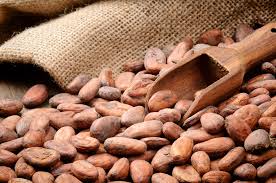
记忆方法
1. 音译“可可”。
中文词源
cocoa 可可粉
来自南美土著语cacahuatl, 词源同chocolate, cacao.
英语词源
- cocoa
-
cocoa: [18] Like chocolate, cocoa came to English from the Nahuatl language of the Aztec people. Their cacahuatl meant ‘beans of the cocoa tree’. Its first element was borrowed into Spanish as cacao. This was adopted by English in the 16th century, and remained the standard form until the 18th century, when it was modified to cocoa. Originally it was pronounced with three syllables (/ko-ko-a/), but confusion with the coco of coconut (which was also sometimes spelled cocoa) led to the current twosyllable pronunciation.
- cocoa (n.)
- powder from cacao seeds, 1707, corruption (by influence of coco) of cacao. The printing of Johnson's dictionary ran together the entries for coco and cocoa, fostering a confusion that never has been undone.
权威例句
- 1. My wife was tucked up in bed with her cup of cocoa.
- 我老婆端着一杯热可可窝在床上。
- 2. About 70% of the cocoa acreage is treated with insecticide.
- 大约70%的可可树林地喷过杀虫剂。
- 3. The Ivory Coast became the world's leading cocoa producer.
- 象牙海岸成为世界上可可粉的主要产地。
- 4. The cocoa industry dwindled because it became increasingly difficult to cover costs.
- 由于越来越难以收回成本,可可产业日渐衰落。
- 5. A system of forced labour was used on the cocoa plantations.
- 可可种植园中曾实行强迫劳役制。
